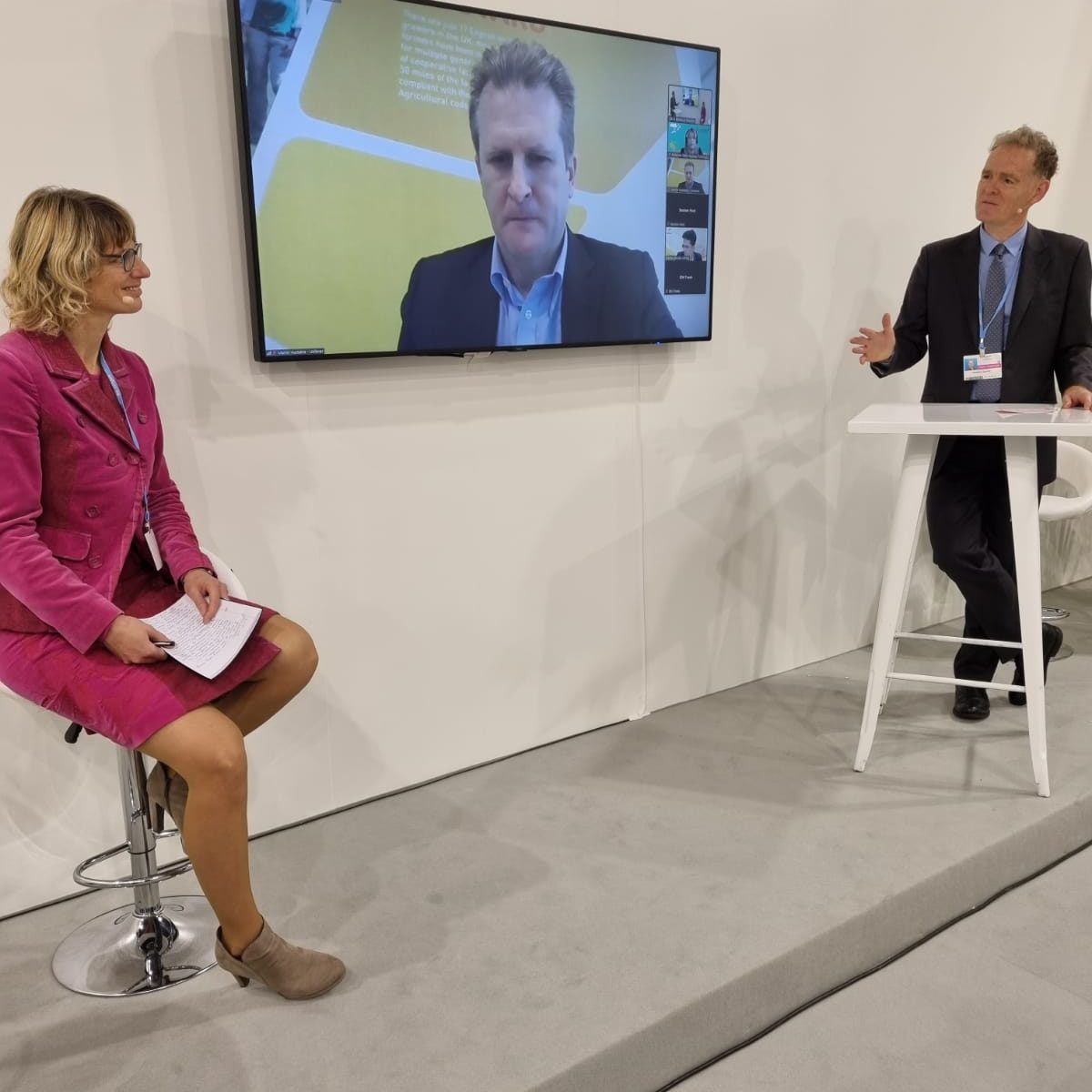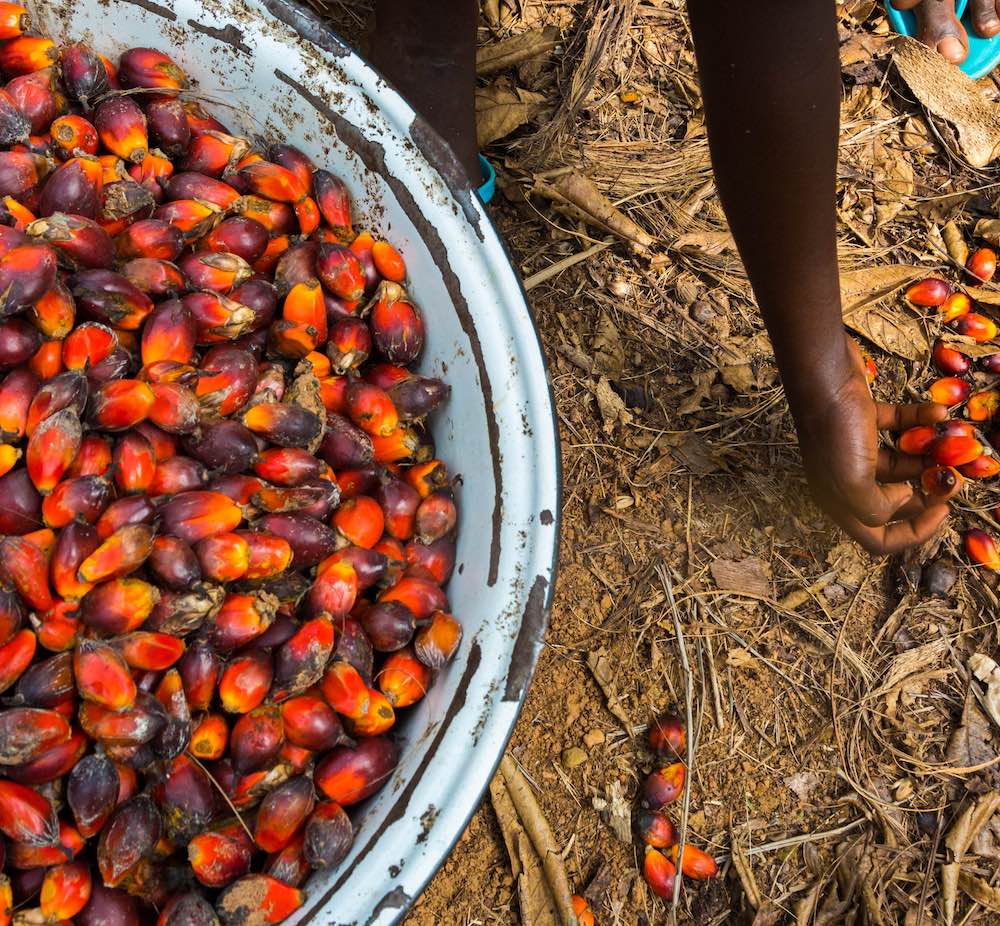As part of the Benelux pavilion at the 2021 United Nations Climate Change Conference in Glasgow, Solidaridad, IDH – the Sustainable Trade Initiative, and the Netherlands Ministry of Foreign Affairs hosted a session on 2 November that set out one of the important solutions that can help protect forests and support smallholders while still developing our global palm oil supply chain.
COP26 saw a reiteration of the global narrative around climate change, with governments once again committing to combating deforestation, reaching carbon neutrality and supporting producing countries as they make the transition away from fossil fuels.
However, these commitments will remain on paper without systemic change in how we produce and consume our planet’s resources. That means supporting programmes that forge the way forward.
Palm Oil: from problem to solution
Our session brought together representatives from civil society, government and industry to see how palm oil can make a positive contribution to global sustainability efforts, as demonstrated by the NI-SCOPS programme. And the conclusion was this: we need to support smallholder farmers in reaching sustainability.
The reality of the global palm oil chain makes this clear. Supporting sustainable palm oil supply chains means supporting the smallholders responsible for producing one third of the world’s supply of palm oil. Dr. Musdgalifah Machmud, deputy minister of Food and Agribusiness in Indonesia, said if we want smallholders to change their practices, then they need to be able to support their livelihoods through sustainable production. This was echoed in the statement of Dr. Ramle Moslim, representing Malaysia.

Heske Verburg, managing director at Solidaridad Europe, stressed the urgent need to ensure that significant funds become available for climate and are used for nature-based solutions, benefiting those at the beginning of our value chains, paying them for the ecosystem services they can provide, making them climate resilient, and enabling them to earn at least a living income.
The importance of making palm oil a sustainable resource is also recognized by major industry players. Martin Huxtable, director of sustainable sourcing at Unilever, emphasized that the successful empowerment of smallholders can help to replenish land for future generations. As Huxtable put it: “Living income will be a driver of farmer and climate resilience. We can get there through partnership.”
Right now organizations like Unilever are redesigning the shape of their supply chain to get closer to the farmers and to work on helping them move towards sustainable production. But corporations, even with the best of intentions, can’t make this change alone. For that we need broad partnerships, involving civil society, government, industry and the farmers themselves. That’s where NI-SCOPS comes in.
The NI-SCOPS Programme
The Governments of Ghana, Indonesia, Malaysia, Nigeria and the Netherlands have initiated a government-to-government (G2G) collaboration, setting up the National Initiatives for Sustainable and Climate Smart Oil Palm Smallholders (NI-SCOPS) – a public-private partnership programme supporting oil palm smallholders, aimed at making palm oil production more economically robust and socially just, while protecting and restoring valuable natural resources. NI-SCOPS is implemented on the ground by IDH and Solidaridad, and is inclusive, targeting landscapes and producer groups where certification is difficult, or uneconomical. It ‘raises the floor’ by partnering with (local) governments to guide all land users on the path to climate-smart agriculture and forest conservation.
Through the NI-SCOPS programme, we have found that international support can be aligned with national goals, policies and frameworks to contribute to the Nationally Determined Contributions (NDCs) and the Paris Agreement. By sharing the responsibility, NI-SCOPS opens doors for government-to-government dialogue on sustainable commodity trade and climate change, while addressing environmental and socio-economic issues.
As Verburg said: “The beauty of the programme is the collaboration between producing and consuming countries, and between smallholders and the private sector. And we see that it works.”
A global partnership: What’s not to like?
This way of cooperating ensures international support is embedded in national policies, which helps to meet internationally set climate change reduction targets.
While NI-SCOPS is focused initially in landscapes in Ghana, Indonesia, Malaysia and Nigeria, with the support of major palm oil trader the Netherlands, the goal is to scale the programme so it becomes more than a good example. The aim of NI-SCOPS is to impact the palm oil supply chain on a truly global scale.
As put by the Director General for International Cooperation at the Dutch Ministry of Foreign Affairs, Kitty van der Heijden: “NI-SCOPS was designed to be scaled. Let’s partner with more countries, both producing and consuming, the smallholders, and the private sector. The sky is the limit! What’s not to like?”
Tackling climate change is a challenge we can meet, if we join forces and commit. The NI-SCOPS partners are calling on our fellow governments, as well as potential corporate partners and civil society, to join and implement models of collaboration to scale sustainable, climate-smart production by smallholder farmers. If you want to be involved, learn how at our dedicated NI-SCOPS page.

